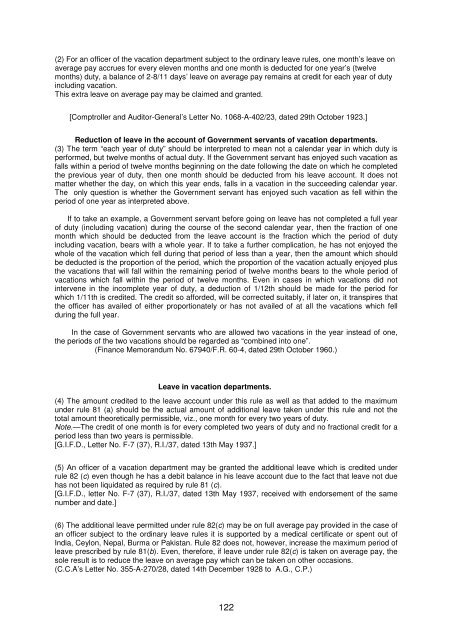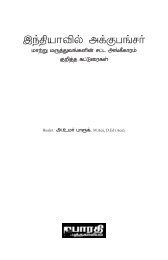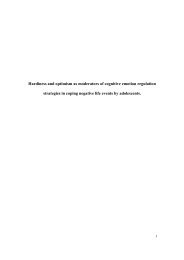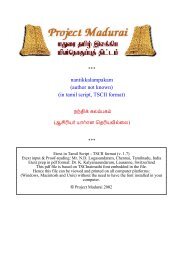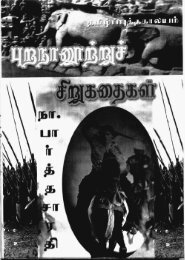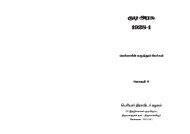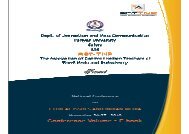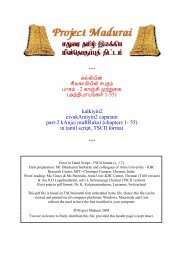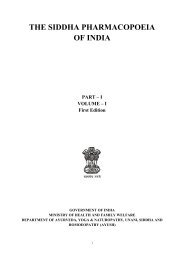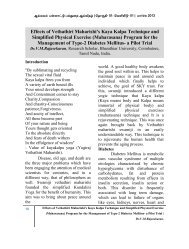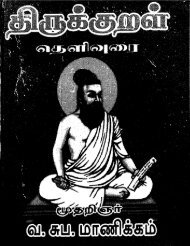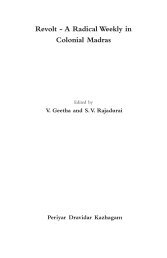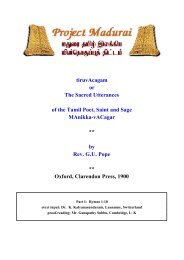THE FUNDAMENTAL RULES OF THE TAMIL NADU GOVERNMENT
THE FUNDAMENTAL RULES OF THE TAMIL NADU GOVERNMENT
THE FUNDAMENTAL RULES OF THE TAMIL NADU GOVERNMENT
- No tags were found...
You also want an ePaper? Increase the reach of your titles
YUMPU automatically turns print PDFs into web optimized ePapers that Google loves.
(2) For an officer of the vacation department subject to the ordinary leave rules, one month’s leave onaverage pay accrues for every eleven months and one month is deducted for one year’s (twelvemonths) duty, a balance of 2-8/11 days’ leave on average pay remains at credit for each year of dutyincluding vacation.This extra leave on average pay may be claimed and granted.[Comptroller and Auditor-General’s Letter No. 1068-A-402/23, dated 29th October 1923.]Reduction of leave in the account of Government servants of vacation departments.(3) The term “each year of duty” should be interpreted to mean not a calendar year in which duty isperformed, but twelve months of actual duty. If the Government servant has enjoyed such vacation asfalls within a period of twelve months beginning on the date following the date on which he completedthe previous year of duty, then one month should be deducted from his leave account. It does notmatter whether the day, on which this year ends, falls in a vacation in the succeeding calendar year.The only question is whether the Government servant has enjoyed such vacation as fell within theperiod of one year as interpreted above.If to take an example, a Government servant before going on leave has not completed a full yearof duty (including vacation) during the course of the second calendar year, then the fraction of onemonth which should be deducted from the leave account is the fraction which the period of dutyincluding vacation, bears with a whole year. If to take a further complication, he has not enjoyed thewhole of the vacation which fell during that period of less than a year, then the amount which shouldbe deducted is the proportion of the period, which the proportion of the vacation actually enjoyed plusthe vacations that will fall within the remaining period of twelve months bears to the whole period ofvacations which fall within the period of twelve months. Even in cases in which vacations did notintervene in the incomplete year of duty, a deduction of 1/12th should be made for the period forwhich 1/11th is credited. The credit so afforded, will be corrected suitably, if later on, it transpires thatthe officer has availed of either proportionately or has not availed of at all the vacations which fellduring the full year.In the case of Government servants who are allowed two vacations in the year instead of one,the periods of the two vacations should be regarded as “combined into one”.(Finance Memorandum No. 67940/F.R. 60-4, dated 29th October 1960.)Leave in vacation departments.(4) The amount credited to the leave account under this rule as well as that added to the maximumunder rule 81 (a) should be the actual amount of additional leave taken under this rule and not thetotal amount theoretically permissible, viz., one month for every two years of duty.Note.—The credit of one month is for every completed two years of duty and no fractional credit for aperiod less than two years is permissible.[G.I.F.D., Letter No. F-7 (37), R.I./37, dated 13th May 1937.](5) An officer of a vacation department may be granted the additional leave which is credited underrule 82 (c) even though he has a debit balance in his leave account due to the fact that leave not duehas not been liquidated as required by rule 81 (c).[G.I.F.D., letter No. F-7 (37), R.I./37, dated 13th May 1937, received with endorsement of the samenumber and date.](6) The additional leave permitted under rule 82(c) may be on full average pay provided in the case ofan officer subject to the ordinary leave rules it is supported by a medical certificate or spent out ofIndia, Ceylon, Nepal, Burma or Pakistan. Rule 82 does not, however, increase the maximum period ofleave prescribed by rule 81(b). Even, therefore, if leave under rule 82(c) is taken on average pay, thesole result is to reduce the leave on average pay which can be taken on other occasions.(C.C.A’s Letter No. 355-A-270/28, dated 14th December 1928 to A.G., C.P.)122


